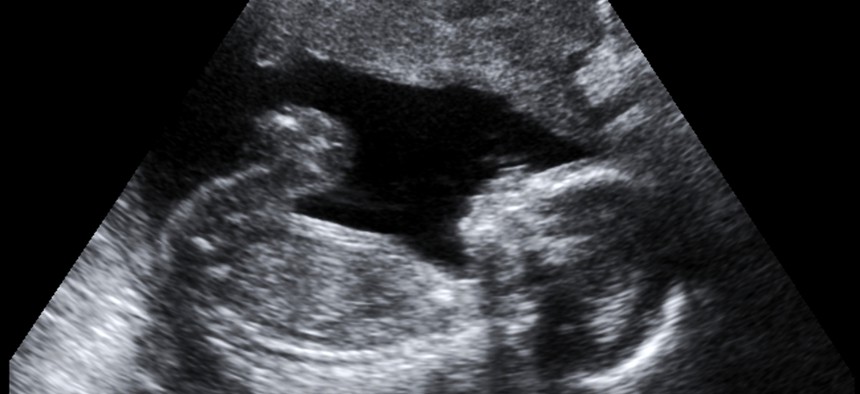
attem/Shutterstock.com
FDA Takes On the 'Keepsake' Ultrasound Industry
The medically unnecessary scans pose a health risk to both fetus and mother.
Despite repeated warnings by the Food and Drug Administration over the years, commercial ultrasound businesses—often set up in shopping malls and run by untrained technicians—continue to offer their services to expectant parents. And consumers, despite the FDA’s pleas, continue to pay for them, shelling out hundreds of dollars for photos or videos of their developing fetus (and fueling a thriving Etsy niche, where ultrasound images can be turned into ultrasoundcufflinks, pillows, cake toppers, and truly unsettling night lights.)
Earlier today, the agency issued the latest of a long line of alerts against non-medical ultrasounds and heartbeat monitors, reminding consumers that “both are prescription devices designed to be used by trained healthcare professionals … only when there is a medical need, based on a prescription,” and that “the FDA strongly discourages their use for creating fetal keepsake images and videos.”
“Ultrasound can heat tissues slightly, and in some cases, it can also produce very small bubbles in some tissues,” FDA biomedical engineer Shahram Vaezy said in the alert. Because the long-term effects of the heating are unknown, anything beyond medical necessity is considered a risk to both mother and fetus. Outside of a healthcare setting, Vaezy said, “the number of sessions or the length of a session”—often up to an hour—“is uncontrolled, and that increases the potential for harm.” (Researchers have recently focused on ultrasound as a possible method of male contraception, noting that it dramatically lowers sperm count when applied to the testicles.)
The FDA first took a stance against non-medical ultrasounds in 1994; since then, it’s issued a steady stream of reminders to parents, healthcare providers, and businesses, including the announcement in 2002 that it was illegal to administer an ultrasound to anyone who didn’t have a prescription. In 2005, the issue again found its way into the spotlight when Tom Cruise told Barbara Walters during an interview that he and then-girlfriend Katie Holmes, pregnant with daughter Suri, had purchased their own ultrasound machine for home use. The following year, in the wake of medical blowback to Cruise’s announcement, theCalifornia legislature passed a bill restricting the sale of ultrasound equipment to healthcare practitioners, though the bill was vetoed by Governor Arnold Schwarzenegger. In 2009, Connecticut became the first state to successfully ban the practice.
Several medical groups have also come out against commercial ultrasounds over the years, including the American Medical Association, the American College of Obstetricians and Gynecologists, the American College of Radiology, theAmerican Institute of Ultrasound in Medicine, and the American Pregnancy Association.
For those still dead-set on emerging from pregnancy with some sort of keepsake, medical ultrasounds can pull double duty. “While FDA recognizes that fetal imaging can promote bonding between the parents and the unborn baby,” the alert says, “such opportunities are routinely provided during prenatal care.”
And besides, there are better souvenirs from those nine months. For example, a healthy baby.
(Image via attem/Shutterstock.com)
NEXT STORY: Scientists Say They Have Found a Cure for Fear






